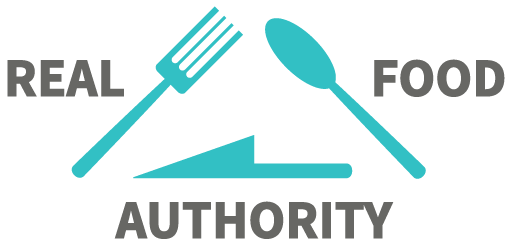Dieting, cutting calories and avoiding entire food groups in the name of health could be sabotaging your gut health. And that’s no small consequence.
The colon, once thought to be a rather dead place where undigested waste sits until you are ready to poo, is actually brimming with activity primarily from trillions of active, beneficial bacteria. Researchers now know the gut microbiome plays an important role in strengthening your immune system and helping to regulate important daily bodily functions, including hunger signals and your mood fluctuations. In fact, 95 percent of the feel-good hormone, serotonin, resides in the gut, meaning what you eat can impact your ability to respond to stress, reduce anxiety and help the body fight foreign invaders that could make you sick.
Turns out, your gut bugs love to eat plants. Bacteria take the undigested plant carbohydrates and use them for energy, creating fatty acids that can refuel your brain and body. The more varied the plants you consume – fruits, veggies, beans, legumes, whole grains, seeds and nuts – the more varied the “good” bacteria are that survive in your colon. They are like picky toddlers who will only feast on certain foods. The best way to optimize the health of your gut is to give the bacteria enough variety of the types of foods they love to eat.
One of the best ways, then, to hurt you gut health is by dieting. Here are three gut-unfriendly dieting practices – and how you can correct them:
- You restrict calories.
If you cut calories to try to lose weight, you may not get the amount of food and fiber you need to allow the best bugs to thrive. Most Americans already fall short of the recommended 25-35 grams of fiber per day.
In order to consume enough fiber to keep your good gut bacteria happy, you need to eat enough calories from high-quality plant foods. Low-calorie diets tend to be low in fat and may not have much in the way of seeds, nuts and avocados, which contribute to both your fiber totals and healthy fat intake.
When your calories are low, your eating needs to be pretty darn near perfect in order to hit optimal nutrition. A perfect diet isn’t always fun, and when your diet isn’t enjoyable, you lose motivation to follow it. Then you probably blame yourself and where does that leave you? Being hungry all the time means you aren’t eating enough, and there’s a good chance your gut bacteria are starving too.
Instead of making yourself miserable, make healthy foods tasty. It doesn’t take but a dash of salt and some fat to liven up a humble head of broccoli, cauliflower or cabbage. Splashes of citrus juice, herbs and spices are excellent choices to brighten up and layer flavor in the dish. Don’t feel an ounce of guilt using a little oil to get delicious vegetables. In fact, a moderate amount of fat with plant foods helps your body better absorb fat-soluble vitamins that plant foods provide.
- You eliminate food groups.
Some popular diet plans today prefer the term “lifestyle” because they don’t promote calorie restriction, but to me, they are diets in disguise because they don’t allow you to get a robust variety of nutrients.
Low-carbohydrate diets, for example, are notoriously low in fiber and excessively high in fat and protein, which has been shown to reduce the diversity of bacteria living in the colon. The paleo diet and the Whole30 plan, meanwhile, don’t allow for resistant starches such as beans, legumes, whole-wheat foods and white potatoes, but these carb-heavy foods are key players when it comes to a healthy and happy gut. These diets also eliminate dairy foods. However, there is good research showing that fermented dairy foods, such as yogurt and kefir, are key probiotic foods that help replenish bacteria in your gut. Of course, if you are allergic to dairy, this would be a reason to avoid it.
To be sure you get the right variety of foods, aim to put plant foods on three-quarters of your plate. Even on your least healthy burger nights, adding a side of carrots and a piece of fruit makes a big difference. Any little effort leads to the next best choice, so just go for it.
- You put your gut in a rut.
Even if you’re not dieting, food ruts are bad for your gut. Often, when you’re uninspired by food, you become very rigid in your routines and do not consume nearly enough volume or variety to satisfy your healthy bacteria. When this happens, you are essentially starving your good gut bugs, causing them to become weak and scarce. Over time, this leads to a lower microbial diversity in the gut.
The good news? Coffee, wine, tea and chocolate – in moderation, of course – all contribute to a healthy microbiome, studies suggest. That’s one way to expand your palette. Another way is simply by giving yourself a break. Don’t make cooking and eating more complicated than it needs to be. Any vegetable-and-bean combination will taste good sauted with a little sauce. Then, add your protein. Try taking advantage of an hour on a weekend to roast veggies all at one and reheat them different days.
Building a pattern of eating well means establishing eating habits that are sufficient in calories, heavy on plants, rich in variety and, most importantly, enjoyable. That’s how you’ll keep those gut bacteria thriving right along with you and working hard for you every single day.





